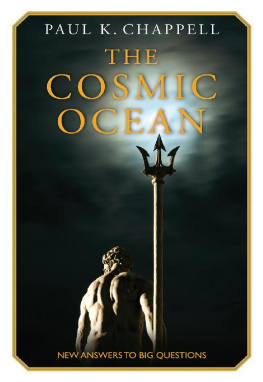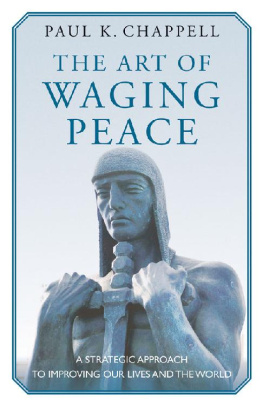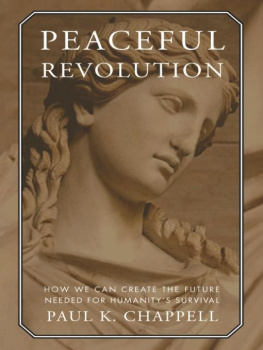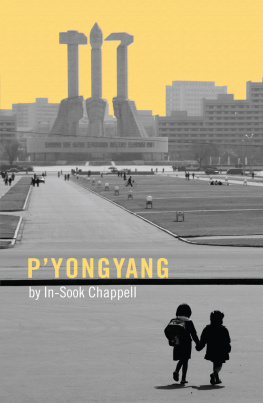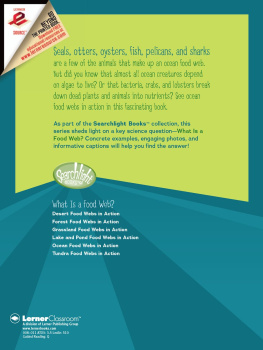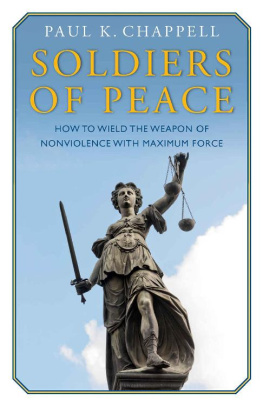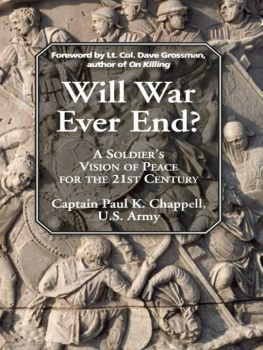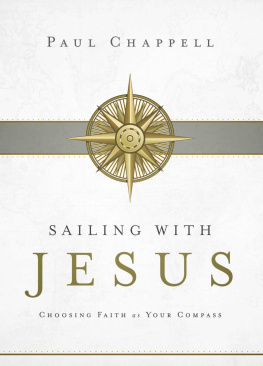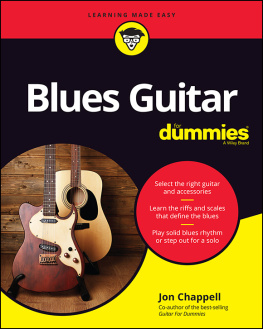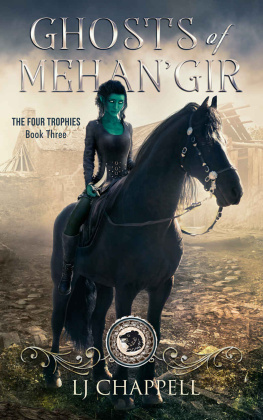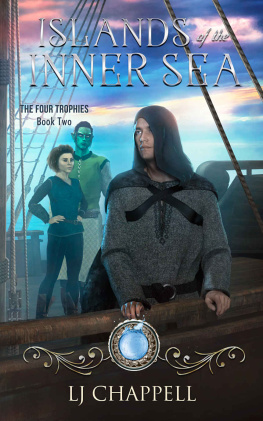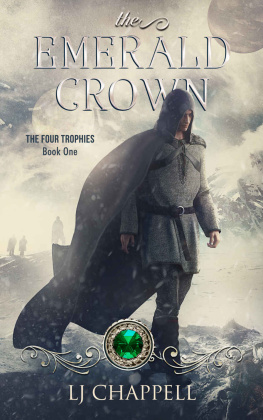Paul K. Chappell - The Cosmic Ocean
Here you can read online Paul K. Chappell - The Cosmic Ocean full text of the book (entire story) in english for free. Download pdf and epub, get meaning, cover and reviews about this ebook. year: 2015, publisher: Easton Studio Press, LLC, genre: Religion. Description of the work, (preface) as well as reviews are available. Best literature library LitArk.com created for fans of good reading and offers a wide selection of genres:
Romance novel
Science fiction
Adventure
Detective
Science
History
Home and family
Prose
Art
Politics
Computer
Non-fiction
Religion
Business
Children
Humor
Choose a favorite category and find really read worthwhile books. Enjoy immersion in the world of imagination, feel the emotions of the characters or learn something new for yourself, make an fascinating discovery.
- Book:The Cosmic Ocean
- Author:
- Publisher:Easton Studio Press, LLC
- Genre:
- Year:2015
- Rating:4 / 5
- Favourites:Add to favourites
- Your mark:
- 80
- 1
- 2
- 3
- 4
- 5
The Cosmic Ocean: summary, description and annotation
We offer to read an annotation, description, summary or preface (depends on what the author of the book "The Cosmic Ocean" wrote himself). If you haven't found the necessary information about the book — write in the comments, we will try to find it.
The Cosmic Ocean — read online for free the complete book (whole text) full work
Below is the text of the book, divided by pages. System saving the place of the last page read, allows you to conveniently read the book "The Cosmic Ocean" online for free, without having to search again every time where you left off. Put a bookmark, and you can go to the page where you finished reading at any time.
Font size:
Interval:
Bookmark:


For the unsung heroes of peace and justice
The Cosmic Ocean shares the treasures I have extracted from trauma. To explain how these treasureswhich take the form of timeless truthscan help us solve our personal, national, and global problems, this book uses personal stories and extensive research to journey through time, around the world, and into every facet of the human condition.
To survive and progress as a global human family, we need a paradigm shift that can transform our understanding of peace, justice, love, happiness, and what it means to be human. But to create such a massive paradigm shift, we must voyage far beyond sound bites. We must look deeply into the nature of reality, resisting the dumbing down of information that has become so common today.
To help create this paradigm shift, the following chapters explore diverse subjects such as empathy, rage, nonviolent struggle, war, beauty, religion, philosophy, science, Gandhi, the Iliad , slavery, human sacrifice, video games, sports, and our shared humanity. It is important to understand these subjects, because to effectively wage peace we must strive to increase the quality and quantity of our understanding, just as generals who wage war strive to increase the quality and quantity of their soldiers.
Understanding allows us to humbly recognize truth. Every human communityincluding our global communityneeds truth, because peace and justice are built on the foundation of truth. When we extract truth from trauma, we can uncover a road that leads to hope, happiness, and human survival.
Trauma has been my greatest teacher, and it has a message all human beings need to hear. If we do not listen to what trauma has to tell us, humanity will not be able to solve problems such as war, nuclear weapons, and environmental destruction. If we ignore the teachings of trauma, these problems we have created may cause our extinction.
Just as diamonds are buried in the darkness of the earth, the solutions to our human problems are jewels hidden in the darkness of trauma. If we listen to what trauma has to say, we will learn how to heal a wide variety of problems that affect our personal lives, country, and planet. If we uncover the secrets buried in the darkness of trauma, we will even learn how to navigate our most urgent problem of allhuman existence itself.
Although trauma has been my greatest teacher, I have also been transformed by other sources of wisdom. This book expresses the essential life lessons I learned during four years at West Point and seven years in the U.S. Army. I also discuss what I learned from studying humanitys greatest peacemakers. And I share the wisdom I received from the unsung heroes of peace and justice. These people are not famous on a national or global scale, but are among the best teachers humanity has to offer.
Martial arts philosophy states that an opponent can become our greatest teacher, because struggle can make us stronger. In this way my trauma has been both an opponent that has tormented me and a teacher that has molded me. Throughout history countries have used armies, mountains, and oceans to keep foreign aggressors off their soil, but trauma is an opponent that can easily bypass these barriers and invade our communities. My father was a veteran of the Korean and Vietnam Wars, and neither large oceans nor locked doors could stop the trauma he carried with him from invading my childhood home.
When we think of shadows we often think of the shade cast by buildings and trees, but war can also cast a shadow. Unlike a building that casts a shadow in a city, war casts a shadow in the human mind. The shadow of war is a metaphor for the trauma caused by war, and by understanding this form of trauma we can better understand all forms. War casts a terrifying shadow on those who are unfortunate enough to stand in its shade; I experienced this during my childhood when my father and I spent many years living in the shadow of his war trauma.
In this book I share the life-changing insights I learned as a child in a violent household, a West Point cadet, an active duty soldier, and a student of trauma. I express these insights through metaphors that help us see the world in new ways, practical lessons we can apply to our daily lives, and stories that provide realistic hope. The army taught me that stories are one of the most powerful communication tools. To explain how this book came into existence, I must tell you a story that began before my birth. It is the story of my father.
My father, Paul B. Chappell, was born in 1925 and grew up in Virginia during the Great Depression. Half black and half white, he lived under segregation. My father was a career soldier who served in the army for thirty years and retired as a command sergeant majorthe highest enlisted rank. He met my Korean mother while he was stationed in Korea. They married in 1975, and I was born in Maryland in 1980 when he was fifty-four years old. My parents moved to Alabama when I was a year old. I was their only child.
Most African Americans born in 1980 are five generations removed from slavery, but I am only three generations removed. My father was old enough to be my grandfather when I was born, thus a generation was skipped between him and me. Furthermore, my grandfather was raised not by his parents, but his grandparents, two former slaves named Wyatt and Frances Chappell; thus another generation was skipped. According to the 1870 census, Wyatt Chappell was born a slave in Alabama in 1835 and Francis Chappell was born a slave in Virginia in 1842.
Because my mother is Korean and I inherited the shape of her eyes and texture of her hair, I grew up looking Asian rather than black or white. Although I look Asian, I was raised to see the world like a black person living before the civil rights movement. The U.S. Army had desegregated during the early 1950s prior to the major civil rights victories, and throughout my childhood my father constantly told me, The army is the only place in America where black men are given a fair chance. Youll never be able to get a decent job unless youre in the army.
As a child I tried to hide the fact that I was part African American, because to me it was bad enough being half Korean, since I was often bullied because of my Asian eyes. No matter how hard I tried to hide my African American blood, however, my parents reminded me that people would eventually find out. According to them, the army was the only place where I would be accepted despite my racial background.
In 1990 when I was ten years old, General Colin Powell was chairman of the Joint Chiefs of Staff, the highest-ranking position in the military. One day when General Powell was on television, my father said, Just look at Colin Powell. He is the highest-ranking soldier, and he is black! Where else in America is such a thing possible? Have you ever seen a black president? My father died in 2004, before the first African American president was elected.
If two of the generations separating me from slavery had not been skipped, perhaps I would have grown up with a different attitude toward my racial background. My attitude was not based solely on what my father told me; it was also reinforced by the racism I experienced as a child in Alabama. When I became an adult, my mother tried to protect me by reminding me that racism would continually threaten my well-being. When I told her in 2009 that I was leaving the military, she shouted, Are you out of your mind? Nobody is going to hire you. Its bad enough you look Asian, but youre also part black. Nobody is going to give a job to a black man who looks Asian. My parents did not tell me lies. On the contrary, they told me their truth. They were describing life as they had experienced it and trying to protect me from the suffering they endured.
Font size:
Interval:
Bookmark:
Similar books «The Cosmic Ocean»
Look at similar books to The Cosmic Ocean. We have selected literature similar in name and meaning in the hope of providing readers with more options to find new, interesting, not yet read works.
Discussion, reviews of the book The Cosmic Ocean and just readers' own opinions. Leave your comments, write what you think about the work, its meaning or the main characters. Specify what exactly you liked and what you didn't like, and why you think so.

